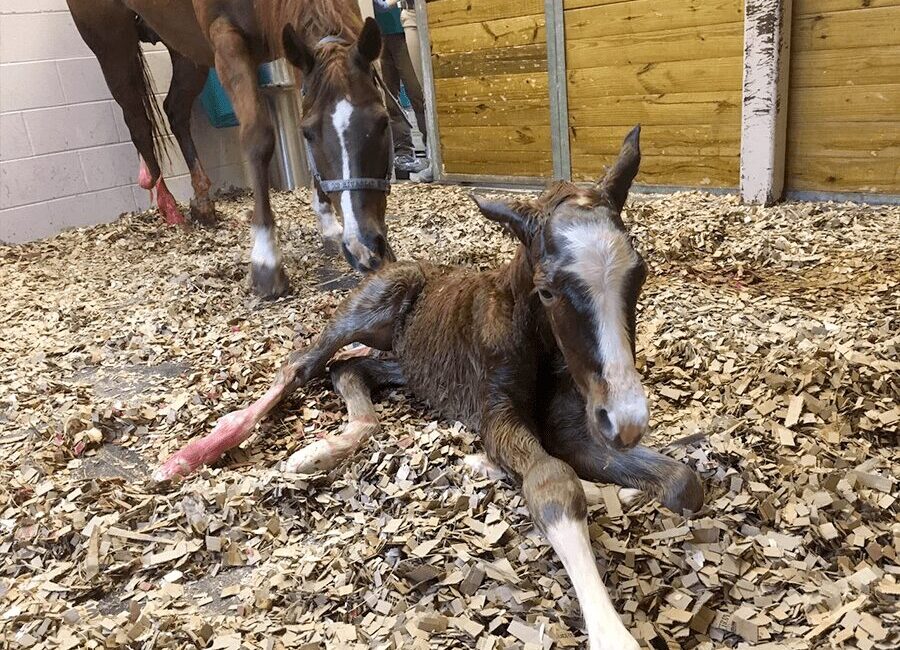Cardboard bedding made immediate sense to Aime K Johnson, DVM, DACT. She is an Associate Professor, Equine and Small Animal Theriogenology, at Auburn University’s College of Veterinary Medicine.
Theriogenology is the veterinary medicine specialty focused on animal reproduction, and Dr. Johnson works primarily with mares experiencing high-risk pregnancies. Her patients range from Warmbloods and Quarter Horses to Arabians and even Minis.
Placenta infections or separations and colics during gestation are some of the conditions pregnant mares are coping with when they arrive.
Whatever their health issues, a healthy, clean environment is a top priority at Auburn’s mare and foal care facility. Conventional options of wood shavings and straw do not support that priority.
“I don’t like shavings because they get in the foal’s eyes and mouth and it’s dusty,” Dr. Johnson explains. “And straw does not provide good absorption. With straw, the fluids from parturition (the birthing process) go straight through to the floor.”
Dr. Johnson was open to trying cardboard bedding when it was introduced to her several years ago.
Airlite is Absorbent
“It was love at first use”, she recalls.
“It’s very absorbent, and there’s no dust like there is with shavings. It really soaks up all the fluids and urine.”
At first glance, Airlite bedding looks a little different than shavings or straw. But the mares in Dr. Johnson’s care seem to love it right away, too. “I’ve never noticed any reluctance when the horses walk into a stall with Airlite. They certainly don’t try to eat it, like they often do with straw.”
Because of its no-dust nature, Airlite cardboard bedding is also used at Auburn for horses with conditions on the Equine Asthma Spectrum. Reducing dust in the equine environment is veterinarians’ top recommendation for preventing or managing respiratory problems. The dust in conventional stall bedding is one of the biggest contributors to unhealthy environments for all horses. That is not the case with Airlite.
Airlite also neutralizes ammonia odors. These arise from “urea,” a byproduct of digestion and metabolism of protein in the horse’s urine. A basic rule of thumb is that if ammonia odors are noticeable to people, they are already at levels harmful to themselves and to horses.
As one of the top-ranked veterinary medical schools in the country, Auburn excels in all aspects of caring for their horses – from cutting edge medicine to basics like providing the healthiest stall environment possible. Airlite cardboard bedding is an Auburn advantage all owners can adopt for their horses’ health.



